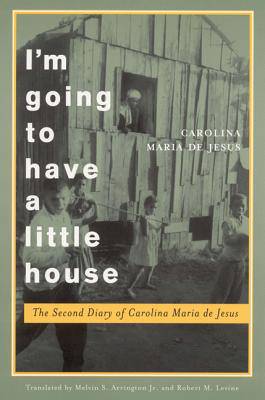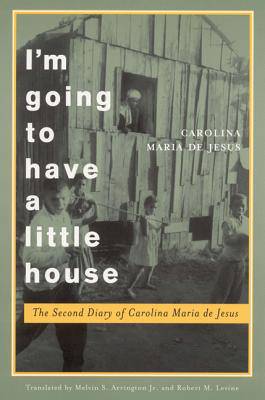
- Afhalen na 1 uur in een winkel met voorraad
- Gratis thuislevering in België vanaf € 30
- Ruim aanbod met 7 miljoen producten
- Afhalen na 1 uur in een winkel met voorraad
- Gratis thuislevering in België vanaf € 30
- Ruim aanbod met 7 miljoen producten
Zoeken
I'm Going to Have a Little House
The Second Diary of Carolina Maria de Jesus
Carolina Maria de Jesus
€ 30,95
+ 61 punten
Omschrijving
In August 1960 the publication of Quarto de Despejo (Child of the Dark) created a sensation in Brazil--and in the rest of the world--as it appeared in translations in fourteen languages. That diary of a poor black woman from a favela on the outskirts of São Paulo became the best-selling book in Brazilian history. In it, Carolina Maria de Jesus chronicled her life as an unemployed, single parent of three children, eking out a precarious existence selling scrap paper and other detritus found in the city streets. She described how she wrote at night on the scavenged scraps. Her remarkable diary--angry, proud, wretched, and hopeful--was found and published by an enterprising journalist. The book's success permitted Carolina to leave her flimsy shack in triumph and move into the cinder-block house of her fantasy. I'm Going to Have a Little House is de Jesus's second diary. It covers the first year following her rise to fame. In it she recounts her struggles with celebrity, middle-class expectations, and the racial and social tensions her success had exacerbated. This work, never previously translated into English, tells the rest of the story--the grim truth that favela life doesn't prepare one for middle-class "respectability" and that the fall back into poverty is as easy as the struggle to escape it is difficult. Carolina Maria de Jesus died in 1977, forgotten and in poverty.
Specificaties
Betrokkenen
- Auteur(s):
- Vertaler(s):
- Uitgeverij:
Inhoud
- Aantal bladzijden:
- 189
- Taal:
- Engels
- Reeks:
- Reeksnummer:
- nr. 4
Eigenschappen
- Productcode (EAN):
- 9780803275997
- Verschijningsdatum:
- 1/07/1997
- Uitvoering:
- Paperback
- Formaat:
- Trade paperback (VS)
- Afmetingen:
- 135 mm x 204 mm
- Gewicht:
- 254 g

Alleen bij Standaard Boekhandel
+ 61 punten op je klantenkaart van Standaard Boekhandel
Beoordelingen
We publiceren alleen reviews die voldoen aan de voorwaarden voor reviews. Bekijk onze voorwaarden voor reviews.











